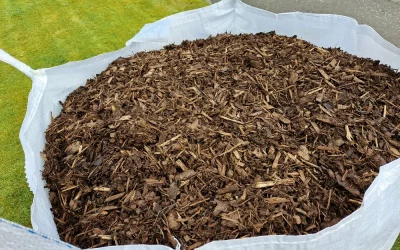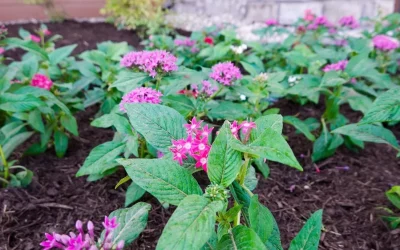Mulching 101: What Is The Best Way To Install Mulch?
Installing mulch is a great way to enhance the look of your landscape and protect plants from harsh weather conditions. But it’s essential to use the right amount of mulch and install it properly. This blog post will share the best practices to determine applications in your garden. Read on to enhance your gardening skills!
How & When To Mulch To Get The Best Results
The right type of mulch and the right amount can create an ideal growing environment for your plants. When deciding on a kind of mulch, it’s vital to consider the specific needs of your plants.
Trees & Shrubs
How much: When mulching trees and shrubs, you should aim for a layer 3 to 4 inches thick and spread mulch from the base to the branch of the tree.
When: For optimal results, you should lay your mulch as soon as the soil is dry and ready to nurture your garden. Springtime is perfect for applying this fruitful covering!
What type: For trees and shrubs, organic mulches like wood chips, bark, leaves, or pine needles are a great choice.
Flower Beds
How much: When mulching flower beds, you should aim for a layer 1 to 2 inches thick.
When: Mulch should be applied in early spring after the ground has thawed and become workable.
What type: For flower beds, organic mulches like wood chips, bark, leaves, or pine needles are ideal, but shredded rubber or plastic also works well. They’ll help retain moisture and keep weeds from growing.
Vegetable Gardens
How much: When mulching vegetable gardens, you should aim for a 2 to 3 inches thick layer.
When: Mulch should be applied in early spring after the ground has thawed and become workable.
What type: Organic mulches like straw or hay are ideal for vegetable gardens because they help retain moisture and keep weeds from growing. While you can use wood chips and other coarse materials, they may not break down as quickly.
Mulching Benefits
• Mulch reduces the water that evaporates from your soil, significantly reducing your need to water your plants. Mulching is essential for areas that experience droughts every year.
• Mulch improves your soil’s quality by breaking down clay. This process allows better water and air circulation through the soil.
• Mulch helps sandy soil to retain nutrients and water.
• Mulch creates an insulating layer on top of the soil, keeping it cooler in the summer and protected from freezing during winter.
• Mulch keeps weeds down, and the weeds that do grow are much easier to pull.
Improve Your Landscape With Bella Mulch
Mulching can be a great way to enhance the look of your landscape and protect your plants from harsh weather conditions. Ensure your mulch installation gets appropriately done by asking a mulch supplier like Bella Mulch for help.
At Bella Mulch, our mulch company can provide you with the highest quality mulches and installation services to ensure your garden looks its best. Contact us today to learn more about how we can help!



